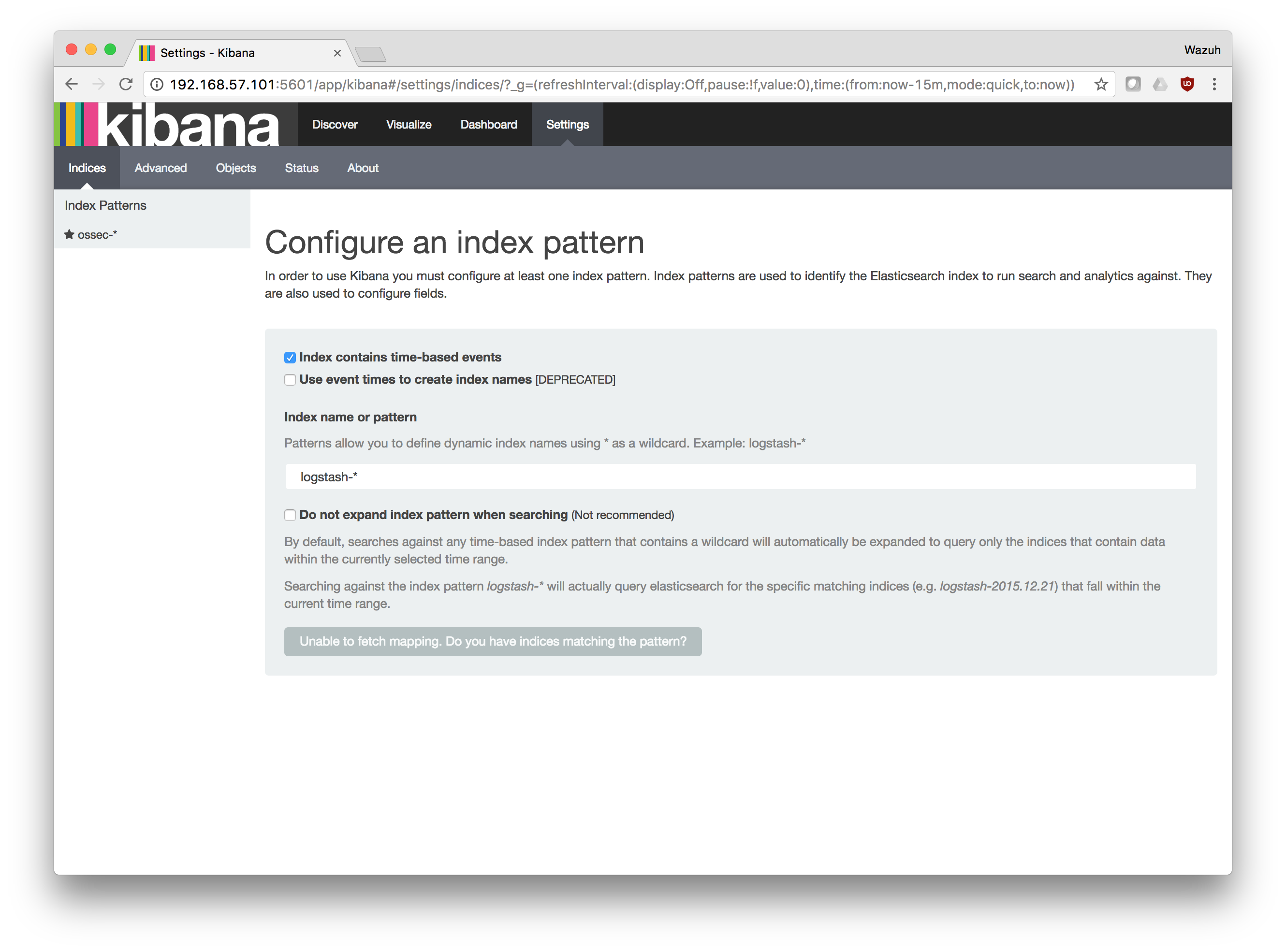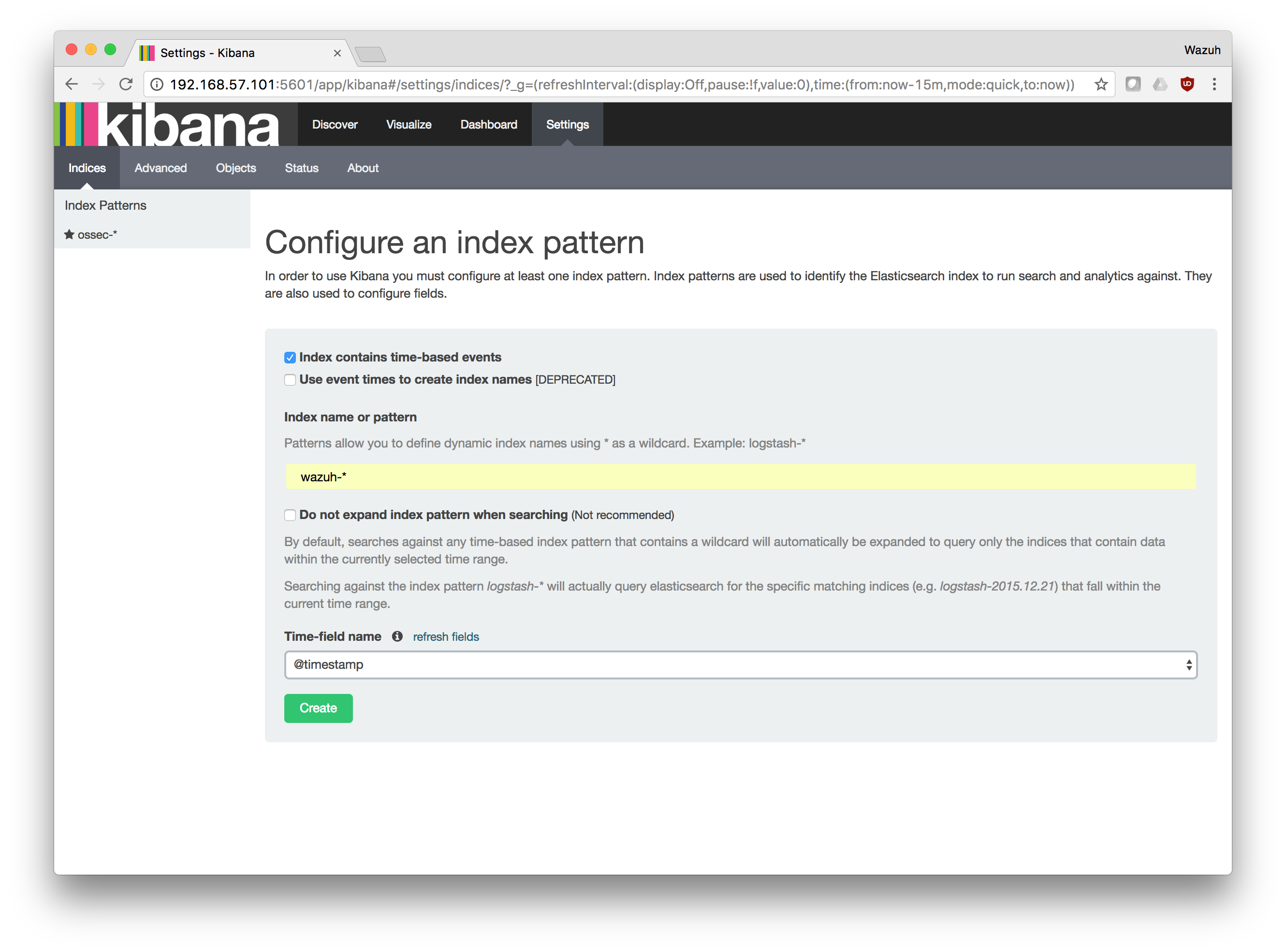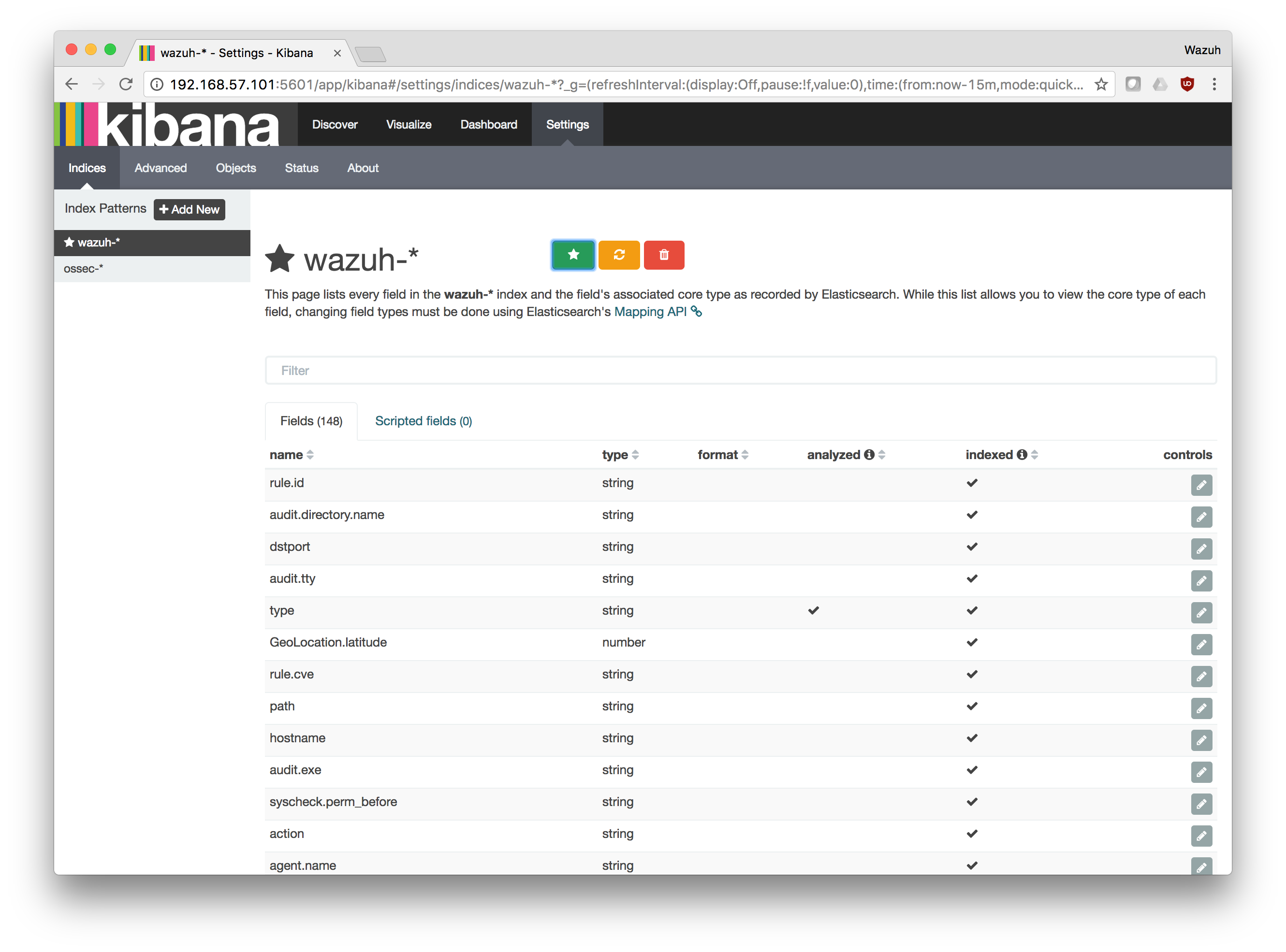Upgrading Elastic Stack from 2.x to 5.x
Although Wazuh 2.x is compatible with both Elastic Stack 2.x and 5.x, it is recommended that version 5.x will be installed since the Wazuh Kibana plugin is not compatible with Elastic Stack 2.x.
Choose one from the following scenarios:
Continue using Elastic Stack 2.x
In this scenario, the user has to configure Logstash to receive data from Filebeat or directly read alerts generated by the Wazuh manager if a single-host architecture is used feeding Elasticsearch using the Wazuh alerts template:
Configuring Logstash
Download the new Logstash configuration:
# curl -so /etc/logstash/conf.d/01-wazuh.conf https://raw.githubusercontent.com/wazuh/wazuh/2.1/extensions/logstash/01-wazuh.conf # curl -so /etc/logstash/wazuh-elastic2-template.json https://raw.githubusercontent.com/wazuh/wazuh/2.1/extensions/elasticsearch/wazuh-elastic2-template.json
In the output section of the
/etc/logstash/conf.d/01-wazuh.conffile, comment the line containingelastic5-templateand uncomment the line containingelastic2-template:output { elasticsearch { hosts => ["localhost:9200"] index => "wazuh-alerts-%{+YYYY.MM.dd}" document_type => "wazuh" # template => "/etc/logstash/wazuh-elastic5-template.json" template => "/etc/logstash/wazuh-elastic2-template.json" template_name => "wazuh" template_overwrite => true } }If a
single-host architectureis used, where the Wazuh server is installed along with Elastic Stack on the same host, edit the/etc/logstash/conf.d/01-wazuh.conffile commenting the entire input section titledRemote Wazuh server - Filebeat inputand uncommenting the entire input section titledLocal Wazuh server - JSON file input:# Wazuh - Logstash configuration file ## Remote Wazuh server - Filebeat input #input { #beats { # port => 5000 # codec => "json_lines" # ssl => true # ssl_certificate => "/etc/logstash/logstash.crt" # ssl_key => "/etc/logstash/logstash.key" # } #} # Local Wazuh server - JSON file input input { file { type => "wazuh-alerts" path => "/var/ossec/logs/alerts/alerts.json" codec => "json" } } ...
The configuration above will setup Logstash to read the Wazuh alerts.json file directly from the local filesystem rather than receive forwarded data from Filebeat.
Configuring Kibana
In order to display the Wazuh alerts data, configure the Kibana index pattern:
Go to the Settings tab and configure a new wildcard:

Set the
wazuh-*as an index pattern and choose thetimestampas a time field. Then, click on thecreatebutton:
Set this wildcard as default by clicking on the
star icon:
Go to the Discover tab in order to visualize the alerts data.
Upgrading from Elastic Stack 2.x to 5.x
Follow these steps to upgrade Elastic Stack to version 5.x:
Stop the Logstash, Elasticsearch and Kibana services:
# systemctl stop logstash # systemctl stop elasticsearch # systemctl stop kibana
# service logstash stop # service elasticsearch stop # service kibana stop
Remove the old Logstash configuration and template files:
This step has to be done if the Wazuh server and Elastic Stack are installed on the same system:
# rm /etc/logstash/conf.d/01-ossec-singlehost.conf # rm /etc/logstash/elastic-ossec-template.json
This step has to be done if Elastic Stack is installed on a standalone system:
# rm /etc/logstash/conf.d/01-ossec.conf # rm /etc/logstash/elastic-ossec-template.json
Remove deprecated settings from the Elasticsearch configuration files:
Removing deprecated settings on Elasticsearch will avoid errors and conflicts after the upgrade. To do this, comment the following lines in the
/etc/elasticsearch/elasticsearch.ymlconfiguration file:index.number_of_shards: 1 index.number_of_replicas: 0
The
ES_HEAP_SIZEoption is now deprecated and should be removed or commented in the/etc/sysconfig/elasticsearchfile:# ES_HEAP_SIZE - Set it to half your system RAM memory ES_HEAP_SIZE=8g
The next step consists on configuring Elasticsearch following the Elastic jvm.options guide.
Install the newest version of Elastic Stack 5.x. Follow the appropriate link below for installation instructions for the desired operating system:
Check the software version of the Elasticsearch components to verify that the update was successful:
For Logstash:
# /usr/share/logstash/bin/logstash -Vlogstash 5.2.2
For Elasticsearch:
# /usr/share/elasticsearch/bin/elasticsearch -VVersion: 5.2.2, Build: f9d9b74/2017-02-24T17:26:45.835Z, JVM: 1.8.0_60
For Kibana:
# /usr/share/kibana/bin/kibana -V5.2.
Note
Wazuh 2.x uses different indices and templates than Wazuh 1.x. After the upgrade, the previous alerts will not be seen in Kibana. In order to access these alerts, the previous indices have to be reindexed.